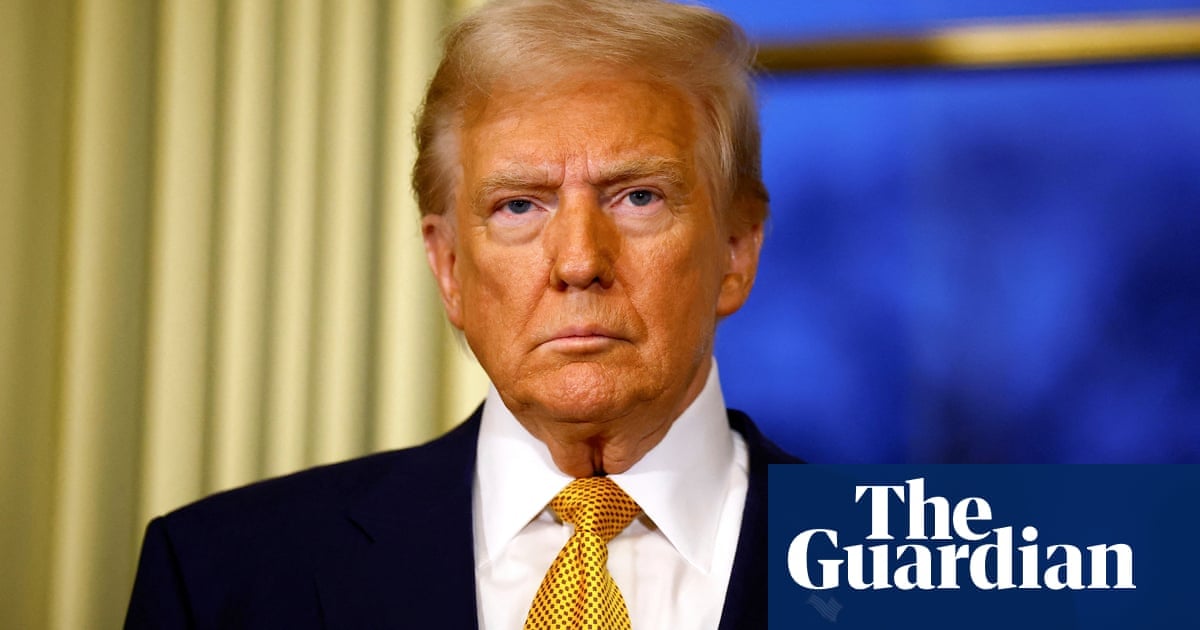Summary
Donald Trump’s pledge to end birthright citizenship faces major legal barriers, but experts say it’s slightly more conceivable now due to the conservative Supreme Court majority.
The 14th Amendment guarantees citizenship to anyone born in the U.S., and scholars argue Trump’s proposed executive action would likely be struck down.
Conservatives claim the amendment’s “jurisdiction” clause could exclude children of undocumented immigrants, though most experts disagree.
Ending birthright citizenship would require a constitutional amendment, an unlikely feat, and scholars warn it could revive caste-like inequality in the U.S.
The constitution is very clear about birthright citizenship. But then, it’s also pretty fucking clear about not allowing insurrectionists to be president, and that presidents aren’t supposed to be above the law.
I bet y’all a quarter this ends up with Elon Musk getting the ability to run for president
Amendments can only be taken away through a 2/3s vote in congress. Being that the split is damn near 50/50 he will never get the votes to remove the Amendment. Executive orders cannot supercede amendments either.
SCROTUS: lol we don’t give a shit about the constitution
It truly doesn’t matter. As mentioned elsewhere, the Supreme Court will play whatever Calvinball rules are needed to make it happen, logic be damned. The fact that “corporations are people” and “presidential immunity is a complete defense for provable crimes” are said with legitimacy is proof that any faith you hold in the rule of law is null and void.
It doesn’t matter…at all…he executes the order, deports everyone, the case makes it to the supreme Court sometime around 27 or 28 after the damage has been done.
The ruling won’t matter at that point. It’s pretty standard GoP procedure these days.
Take the guns first, go through due process second.
it only takes the two scotus seats moscow mitch helped steal for the diaper for episode 1.
from obama (“it’s an election year”… it was only march, ffs; scalia’s seat remained empty for 14 months)
and from biden (barrett confirmed just eight fucking days before election; gross contradiction of the above)
had obama and biden filled those two seats, the scotus balance would be 5-4 the other way. roe would still be law of the land. donvict may have seen some actual consequence for his illegal activities without ‘his’ judges to give him a golden get-out-of-jail-free card, and he’d be sulking in a sand trap in flordia on jan 20, 2025.
Nowhere in the Constitution does it explicitly say, “anyone born on US territory automatically gets US citizenship.” That is the straightforward interpretation of the text that has been precedent for well over a century. But it’s not like the present court gives much credence to historical precedent. Hell, look at the 2nd Amendment. The idea that it grants a strong individual right to unrestricted firearm ownership is a very recent interpretation, historically speaking. Or look at the Emoluments clause, which Trump flagrantly violates. Conservative legal scholars already have an interpretation on the Constitution that would allow them to end birthright citizenship. All SCOTUS has to do is to endorse that interpretation.
Or a constitutional convention, which would require 2/3 of state governments calling one. With a little more voter suppression and blatant gerrymandering (now sanctified by a 6-3 Supreme Court majority), that goal is within reach, and could lead to many other “reforms”.
That isn’t necessary. Birthright citizenship is based on the 14th Amendment, which states:
“All persons born or naturalized in the United States, and subject to the jurisdiction thereof, are citizens of the United States and of the State wherein they reside.”
The key clause here is “subject to the jurisdiction thereof.” This clause has long been interpreted broadly, with few exceptions. Think foreign diplomats that have diplomatic immunity, or the hypothetical case of a foreign army invading US soil. But with very few exceptions, it has been interpreted that anyone on US territory is “subject to the jurisdiction” of the US. Thus, even the children of illegal immigrants gain citizenship at birth.
But note, nowhere does it actually explicitly say, “anyone born on US territory is a US citizen, full stop.” All SCOTUS has to do is to rule that “subject to the jurisdiction thereof” means “in the US legally.” So if you’re a foreigner here on a valid visa, and you have a kid, that kid gets citizenship. But if you’re not here legally, then your kid doesn’t get citizenship. Conservative legal theorists have already written elaborate legal theories backing up such an interpretation. All SCOTUS has to do is to adopt those interpretations.
The Supreme Court has ruled that even the children of illegal immigrants get automatic citizenship since 1898, but that interpretation could be changed at any time. It’s not like the present court has a great deal of respect for precedent. Roe v. Wade was the law of the land for 50 years, and striking it down stripped civil rights from half the population. Ending birthright citizenship would harm fewer people than rulings the court has already recently made.
Stupid question from a non-American: Is the intent behind the “subject to the jurisdiction thereof” wording not documented? It’s not like these are words conjured from the ether. People wrote them. Presumably after some discussion and debate.
I’m guessing the amendment as a whole was related to anti-slavery stuff following the civil war. But was there not some understanding at the time as the wider implications of the specific words?
Sure, I guess they can be interpreted however a modern conservative court wants, but why is discussion around the clause so ambiguous as to its origins?
An amendment to the Constitution is no trivial thing to pass. It typically requires a 2/3rds vote in both houses of Congress, then it passes to the states for ratification. 3/4 of the individual state legislatures then have to ratify the amendment in order for it to be added to the Constitution. Through the whole nearly 250 year history of the Constitution, only 27 have been passed, and 10 of those were in the original Bill of Rights that passed nearly concurrently with the original Constitution.
Every amendment thus by necessity is a major exercise in compromise. Which means different groups will support it for different reasons. So even if you are an originalist, a justice that attempts to rule based only on the original intention of the authors of an amendment, you will be able to find writings supporting numerous interpretations for it. And it’s not like we’re talking about a document millennia old, where most contemporaneous writings have been lost to time. We still have almost all the myriad writings associated with the various amendments as they were written, debated, and ratified. So a justice can find citations for any reasonably plausible interpretation. There’s probably no way to contort the 14th amendment to mean “private property is now abolished and we now live under Communism.” But you could interpret it anywhere from it being effectively toothless one one extreme to “even citizens of Germany under US occupation post WW2 automatically get US citizenship” on the other.
And there other judicial philosophies. Some are textualists, they disregard any intent behind the words and focus only on the literal meaning of the words themselves.
Others have a “living document” interpretation, willing to extrapolate and read between the lines.
And this assumes actual good faith on the part of the justices themselves. Often justices with a political axe to grind will start with their conclusion and work backwards from there.
I have a question about this that I have been thinking about. If they did this, probably through executive order, Would they not create a situation that the US federal government does not have jurisdiction over illegal immigrants? The federal government has jurisdiction or it doesn’t, there is not an in-between. This would shift jurisdiction to the states, which would be a nightmare for the people trying to do this. I suppose you could change the meaning of the word “Jurisdiction”, but since it is in the constitution, that would effectively change the meaning in all federal law, also a nightmare scenario. The only way I can see this type of order or law passed, without amending the constitution, would be to pass the law and try to stall it to deport as many as you could. I think this would not work also, due to lower court judges stopping it, and forcing the supreme court to take it up. Then I guess it would take some mental gymnastics for them to get it passed and not start a civil war.
Mhmm, the Constitution and what Army? It’s a piece of paper and I don’t see people lining up to defend it.
It’s wild to see mainstream journalists openly admitting that it doesn’t matter what the Constitution says.
The article says that the language in the constitution is for birthright citizenship, but the conservatives will try to make some sort of stupid nuanced argument to create a loophole that kick kids of undocumented immigrants out of the country.
But if Trump were to try to use executive action to eliminate birthright citizenship, courts would probably strike it down because of language contained in the 14th amendment, according to scholars.
Still, given the conservative majority on the supreme court – and fact that one of the people considered a candidate for the court has argued that the provision does not apply to children of “invading aliens” – it’s not a certainty that birthright citizenship will remain in place, said Amanda Frost, a University of Virginia law professor and expert in immigration and citizenship law.
If the scotus allowed this, this would be an epic clusterfuck across the nation. If you’re the kid of undocumented immigrants and your citizenship is no longer valid, how about your kids? How about your kids kids?
This would be such a fucking shit show.
Caste-like inequality is what the trump regime wants.
There’s already a caste system in the US multiple studies have told us the class mobility is dead. Has been for 20 years.
“There’s a precedence for ignoring the 14th amendment.”
scholars warn it could revive caste-like inequality in the U.S.
Revive?
Lmao. Class mobility died in 2005. It’s been a caste system for 20 years.
deleted by creator










